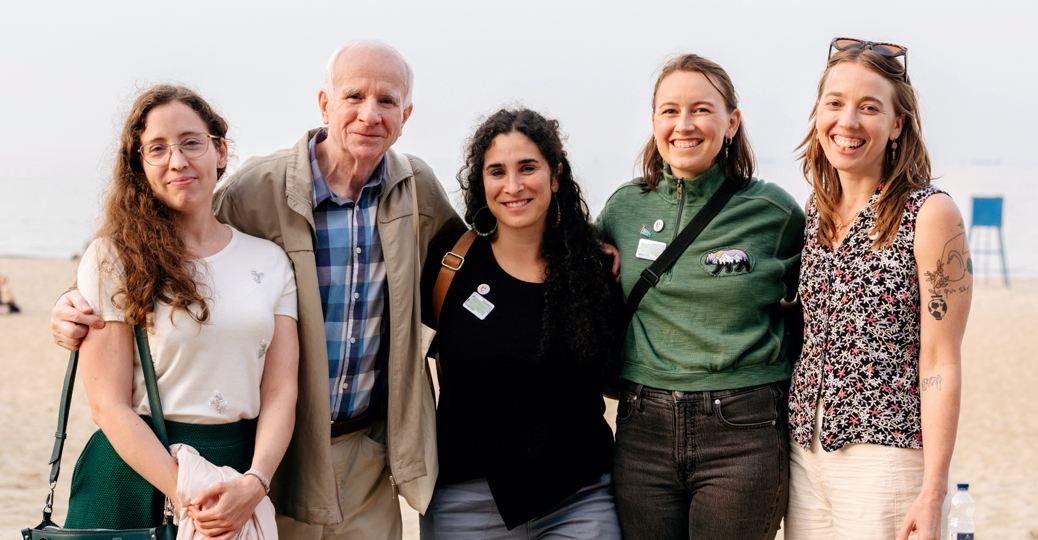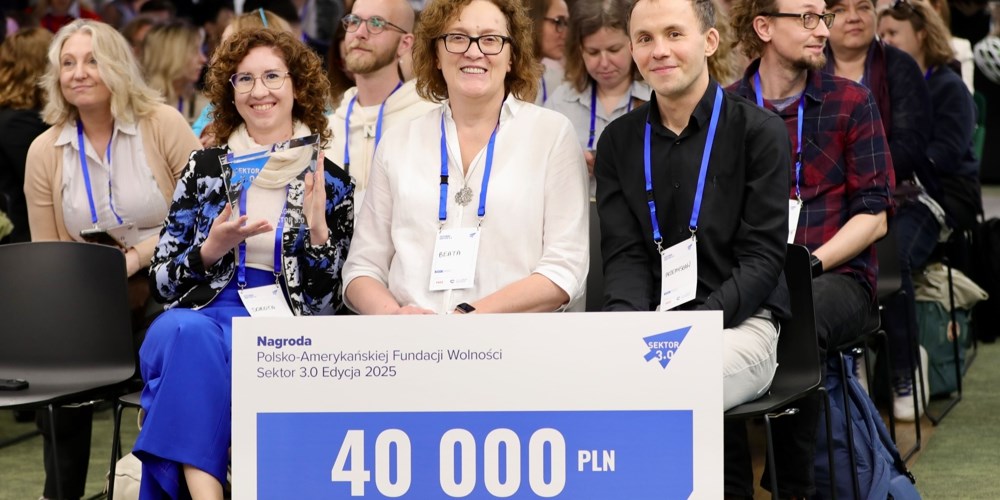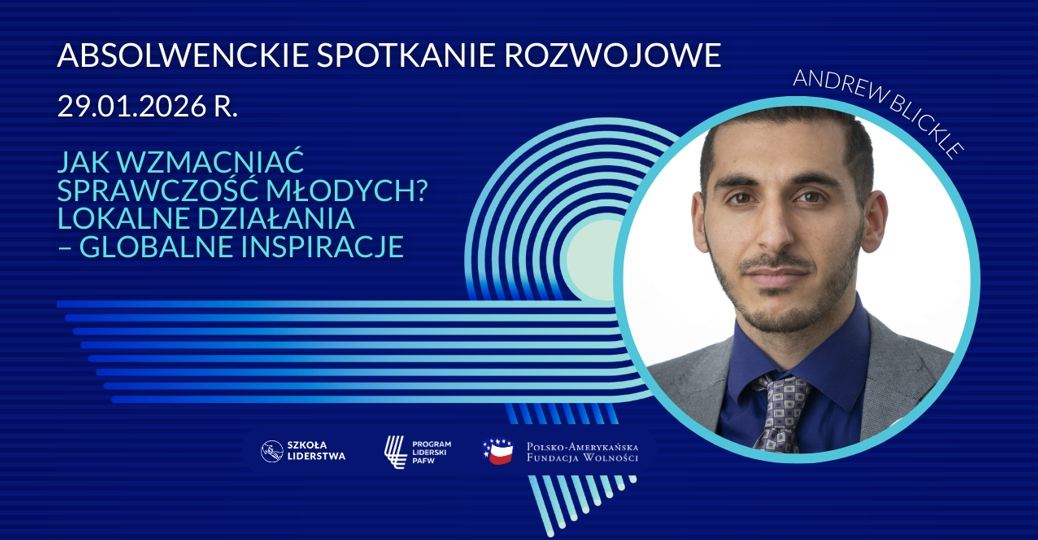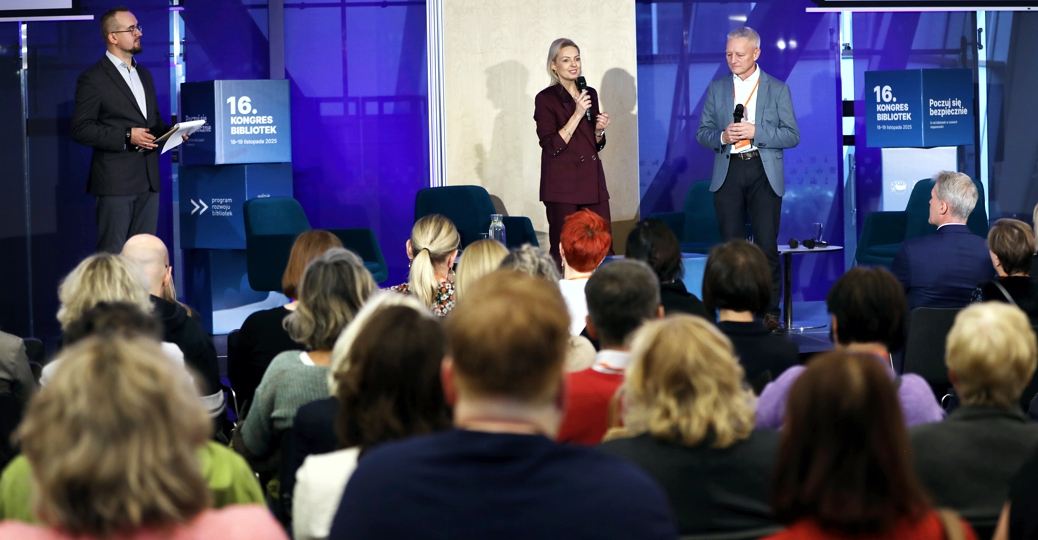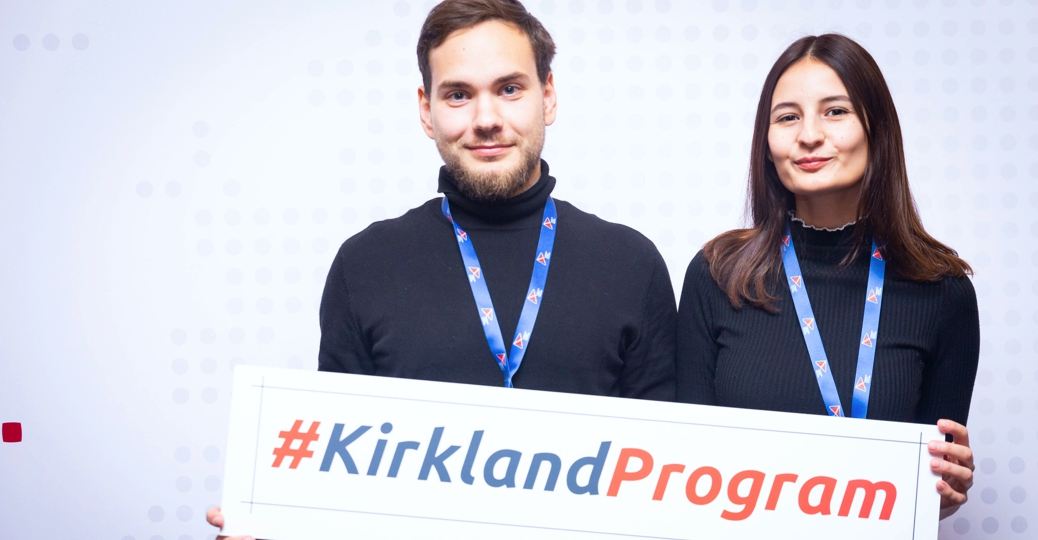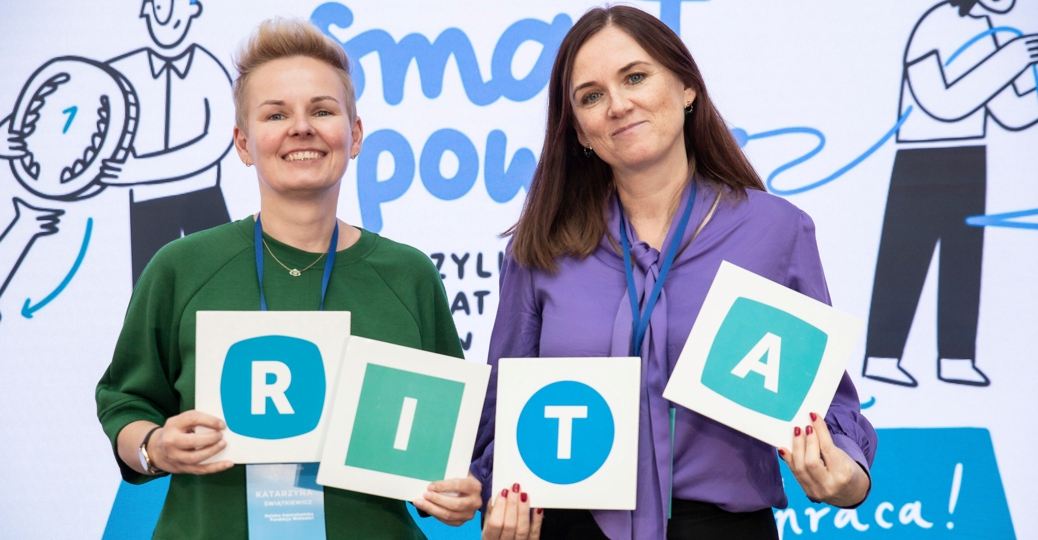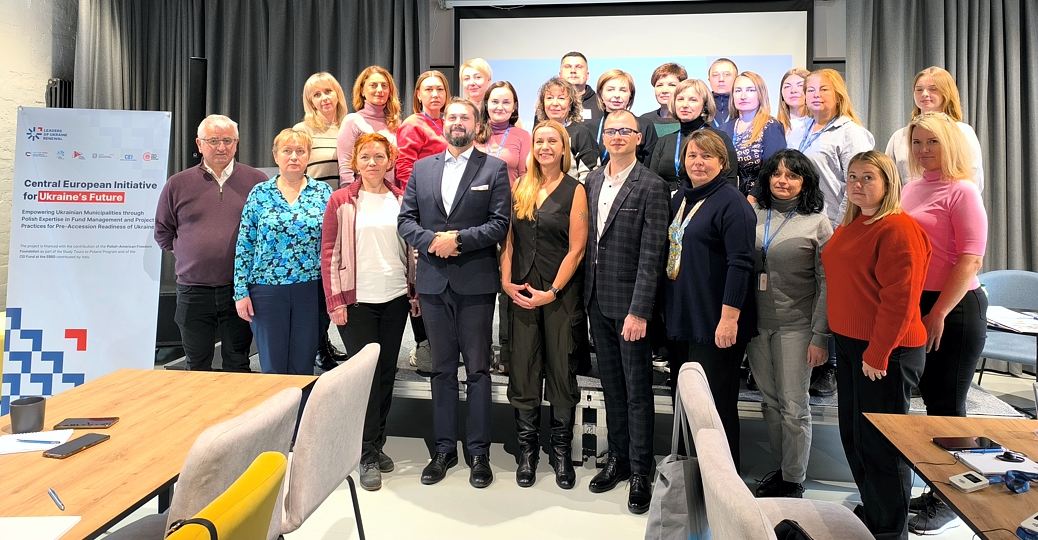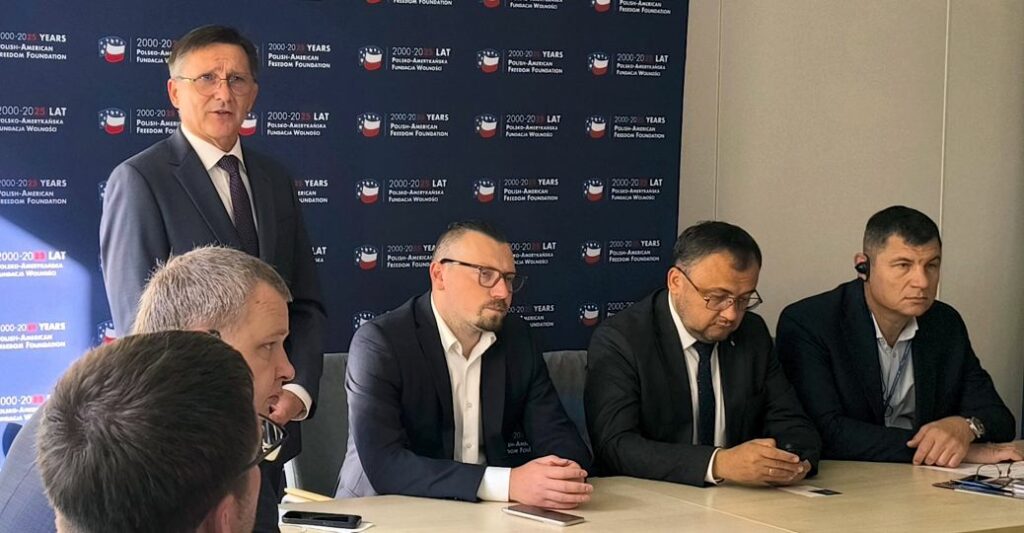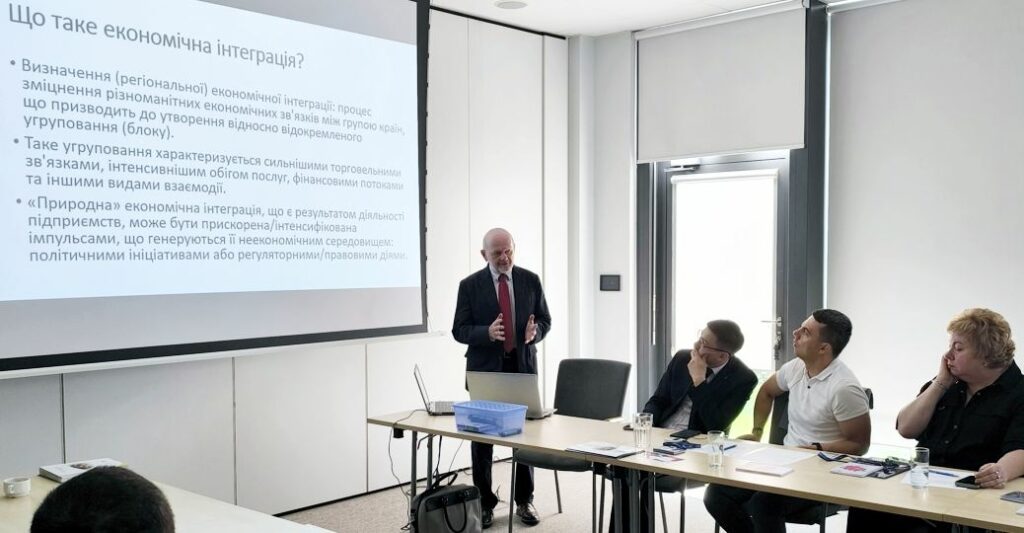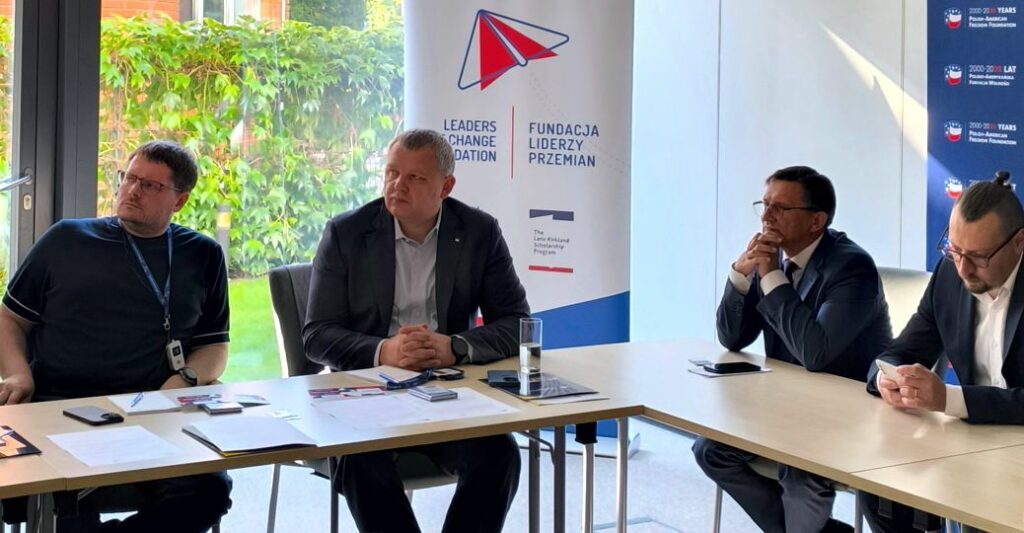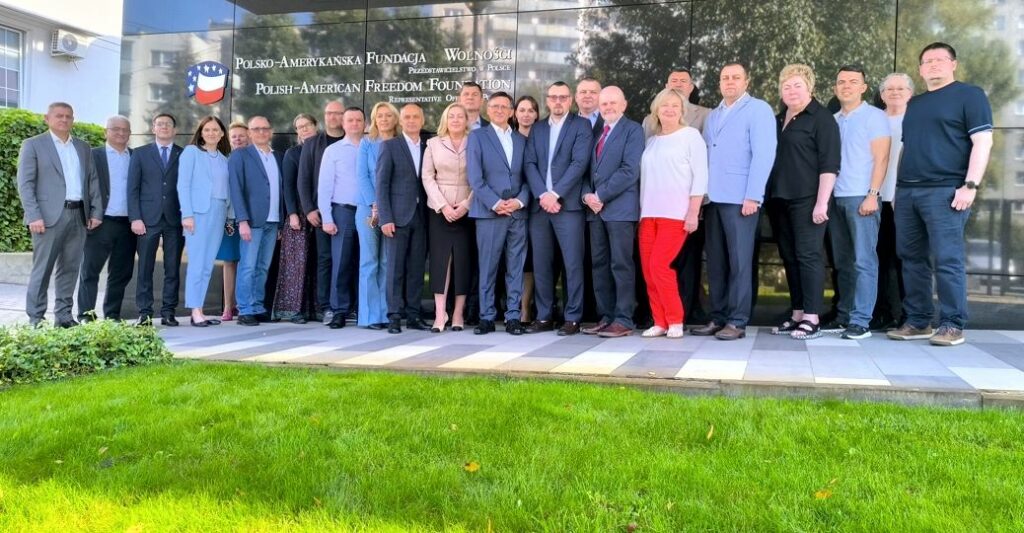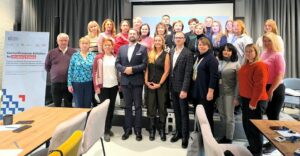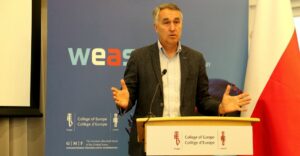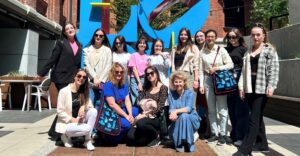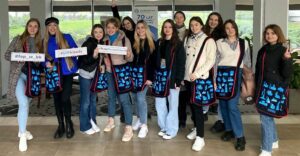On September 8-12, representatives of regional and local administrations from Ukraine responsible for European integration issues participated in a study visit to Poland organized by the Leaders of Change Foundation as part of the “Study Tours to Poland” program run by PAFF.
Sixteen people from the regions of: Kharkiv, Zaporizhia, Volyn, Chernihiv, Rivne, Kherson, Khmelnytskyi, Dnipropetrovsk, and Cherkasy took part in the tour. Ukraine is systematically preparing its regions to implement European standards, strengthening the position of local government and regional authorities.
The study visit began with a meeting at the headquarters of Polish-American Freedom Foundation in Warsaw, attended by the Ambassador of Ukraine to Poland, H.E. Vasyl Bodnar, the Head of the PAFF Representative Office in Poland and COO – Grzegorz Jędrys, and Mirosław Skórka, Director of the “Study Tours to Poland” program.
“For over three years the Foundation has been involved in activities for Ukraine, which has fallen victim to brutal aggression from Russia, actively participating, in cooperation with other non-governmental organizations, in aid initiatives for war refugees in Poland, primarily in ‘Support for Ukraine’ program, to which the Foundation has so far allocated over PLN 13 million. This support has directly benefited 116,000 Ukrainian refugees staying in Poland and over 166,000 people in Ukraine,” said Grzegorz Jędrys, pointing to the extremely important role of Ukraine in the program activities of Polish-American Freedom Foundation.
Expressing his gratitude for this support, Ukrainian Ambassador H.E. Vasyl Bodnar also emphasized the importance of exchanging experiences with Polish partners and strengthening regional cooperation on Ukraine’s path to European Union membership.
The program of the visit combined a theoretical perspective, presented by key Polish experts and former EU commissioners, with a practical look at the implementation of European Union policies at the regional level in Poland.
The first three days of the visit were filled with an expert block in Warsaw devoted to an in-depth analysis of key European Union policies and mechanisms:
- Paweł Samecki, former EU Commissioner, presented the structure and decision-making process in the EU.
- Jan Truszczyński, Poland’s chief negotiator in the accession process, explained the significance and course of the accession negotiations.
- Danuta Hübner, former Commissioner for Regional Policy, spoke about the single market and the role of the EU as an instrument of development.
- Jerzy Plewa discussed the principles and instruments of the Common Agricultural Policy.
- Paweł Brusilo presented the EU’s transport and energy policy.
- Jan Olbrycht, former MEP and Marshal of the Silesian Province, shared his experience in the field of decentralization and the status of regions in Europe.
- Jacek Woźniak explained the principles of cohesion policy, and
- Ewa Synowiec, former director of the European Commission Representation in Poland, presented the topic of the EU’s common trade policy.
The guests from Ukraine then visited Katowice and the Silesian Province.
- During meetings with Marek Wójcik, Governor of the Silesian Province and his team they discussed the role of administration in the implementation of EU regional policy.
- The participants learned about the experiences of Gliwice as a city that has skillfully used EU funds in the transformation process.
- At the Marshal’s Office of the Silesian Province, the structure and instruments for implementing regional policy were presented, and the discussion was concluded with an Oxford-style debate on the challenges for Ukrainian regional administrations in the context of EU policy implementation.
The study tour was organized by the Leaders of Change Foundation as part of the “Study Tours to Poland” program. It involves active students and professionals from Eastern Europe and other post-communist countries, and its aim is to familiarize them with the realities of Poland and the European Union, while developing and strengthening professional and personal contacts between leaders from the East and their Polish hosts through study visits to Poland. In total, between 2004 and 2024, over 11,000 people participated in study visits, including nearly 4,000 students and almost 7,500 professionals representing various fields.









